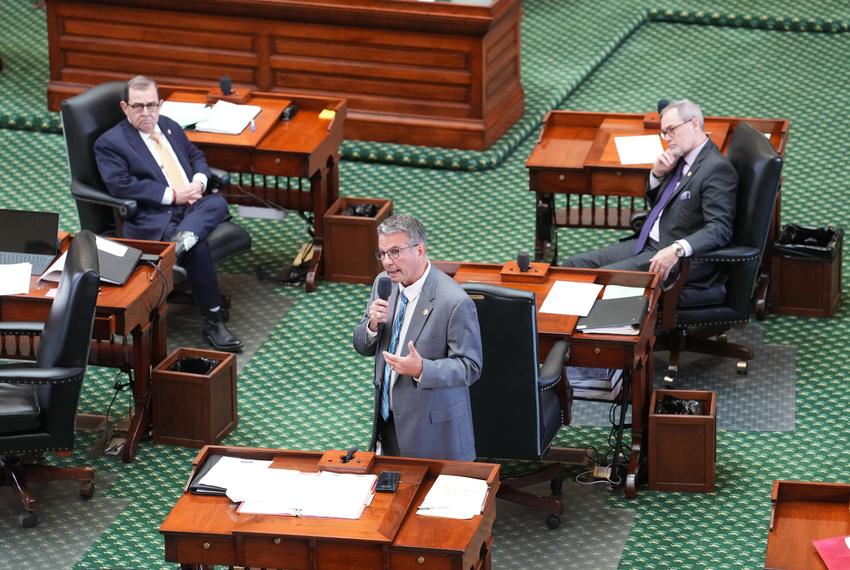The Texas Senate has once again ignited a contentious debate over the future of hemp-derived THC products, preliminarily approving a bill that signals a potential legislative showdown with the House and Governor Greg Abbott. This recent decision reflects a renewed determination by certain lawmakers to impose a ban on intoxicating hemp products, a move that previously faced a gubernatorial veto, highlighting the ongoing tension within Texas politics regarding cannabis legislation.
Sponsored by Republican Senator Charles Perry of Lubbock, Senate Bill 5 proposes a sweeping ban on products containing any detectable amount of cannabinoids other than cannabidiol (CBD) and cannabigerol (CBG). This broad prohibition would effectively eliminate the majority of hemp products currently available, including those considered legal under federal definitions, creating significant implications for the burgeoning hemp industry across the state.
Senator Perry has consistently championed an outright THC ban, directly countering Governor Abbott’s earlier call for regulating hemp similarly to alcohol. Perry argues that state law enforcement agencies lack the necessary manpower and resources to effectively regulate the vast and complex THC market, asserting that prohibition is the more practical and enforceable solution for Texas.
Conversely, Democratic Senator Zaffirini of San Antonio has voiced strong opposition to the ban, emphasizing that many individuals rely on THC products for therapeutic purposes, including as a means to reduce dependence on opioids and alcohol. She advocates for a more pragmatic approach, seeking to build a legislative bridge towards either a comprehensive regulated cannabis market or a significantly expanded Texas Compassionate Use Program (TCUP).
Despite recent legislative efforts to expand the state’s medical marijuana system, Senator Perry maintains that the broader TCUP cannot sustainably operate without a complete ban on hemp-derived THC products. He frames the proposed ban as a critical, albeit potentially delayed, step towards a more structured and controlled environment for cannabis-related substances in Texas, better than the current unregulated landscape.
Parallel to the efforts for an outright ban, other lawmakers are pursuing alternative legislative pathways focused on robust hemp regulation. Notably, Senator West of Dallas has filed two bills: one to establish stringent safety standards for hemp-derived products, including an age limit of 21, a 5 mg per serving cap, mandatory child-safe packaging, and the redirection of tax revenue to public health and law enforcement. His second bill aims to decriminalize personal marijuana use in small amounts.
This legislative session is poised to be a significant battleground between these opposing philosophies: a complete THC ban versus comprehensive hemp regulation. Key figures, including Lieutenant Governor Dan Patrick and Senator Perry, are determined to push for prohibition, while a growing segment of lawmakers is actively seeking a framework that allows THC products to remain accessible under strict state government oversight.
Governor Abbott’s previous veto of a similar ban bill earlier this year underscores the complexity of this issue. His office has clarified a preference for regulating hemp sales akin to liquor sales, advocating for age restrictions (21 and older) and strict penalties for non-compliant retailers. Furthermore, Abbott has specifically called for a full ban on “extraordinarily dangerous synthetic products,” indicating a more targeted approach than a blanket prohibition.
The ultimate trajectory of this pivotal cannabis legislation debate in the Texas House remains uncertain, with various companion bills already filed reflecting the chamber’s diverse perspectives. The hemp industry, including veterans and chronically ill individuals, has largely expressed openness to reasonable regulatory measures, viewing hemp as a more affordable and accessible alternative to the current, limited medical marijuana program, highlighting the broader public health implications of this debate.





Leave a Reply